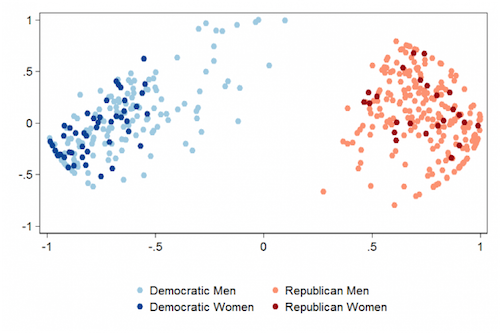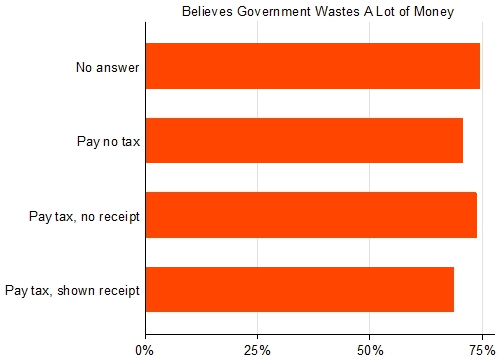Matthew Yglesias's Blog, page 2267
June 21, 2011
Don't Look To The Courts As An Engine Of Social Change
Something that I think most people don't realize is that for the vast majority of American history, the judicial branch has been a very conservative elite-dominated institution. Most people's view of the matter is distorted by the historical aberration that occurred roughly between the Brown and Roe decisions, with a lot of good criminal justice decisions in between. Even there, one has to recall that with its landmark civil rights decisions, the Supreme Court was in large part just reversing what the late 19th century Supreme Court did by throwing out the civil rights legislation of the Grant administration.
I think Dahlia Lithwick's take on the conservative opinion written on the Wal-Mart sex discrimination case illustrates the point:
A lot of critics are saying that this decision has created a new rule: Some companies are simply too big to sue. But that's only half the story. The other half is that in the court's eyes, sex discrimination is simply too pervasive to be a problem. [...]
Scalia concludes that (even in advance of a lawsuit) the women could not show that Wal-Mart "operated under a general policy of discrimination." That's partly because "Wal-Mart's announced policy forbid sex discrimination" and partly because he rejects the plaintiffs' claim that Wal-Mart's "policy" of allowing discretion by local supervisors over employment matters constitutes a policy at all. As Scalia sees it, in giving local managers so much leeway in making personnel decisions, Wal-Mart actually established "a policy against having uniform employment practices." It's not Wal-Mart discriminating against women. It's just all these men doing it, and God knows men don't have unconscious biases and prejudices against women.
Imagine that general background social conditions in the United States are such that women will be disadvantaged in any male-run institution that doesn't make a specific and deliberate effort to lean against that disadvantage. Scalia says, basically, so what? Lithwick is implicitly saying that the courts ought to be a mechanism of justice and progress here, spurring firms to worry that they'll be at risk unless they take proactive measures to reduce gender discrimination throughout their operations. Scalia's not interested. And realistically, this is the reaction we should generally expect from the judiciary when it comes to these business liability cases. Fundamentally, fancy lawyers are just as much the social peers of business executives as ordinary politicians are, but fancy lawyers aren't accountable to voters the way ordinary politicians are.


White House Solar Panels Stuck In Procurement Limbo

Here's a sad story from Kate Sheppard who notes that last year the White House promised to get solar panels up on the Executive Mansion by the end of Spring 2011, and now it's the first day of summer and still no panels. What happened? Well, Ramamoorthy Ramesh explains on the Department of Energy blog: "The Energy Department remains on the path to complete the White House solar demonstration project, in keeping with our commitment, and we look forward to sharing more information—including additional details on the timing of this project—after the competitive procurement process is completed."
There's a real tension between a certain kind of progressive desire for open, honest, transparent government and a keeping desire for vigorous, effective, change-producing government.


Does 'Brain Drain' In Fact Lead To Brain Gain?
As a followup to Matt Cameron's great piece on misguided fear of brain drain, it's worth checking out this late May Economist piece on the ways in which poor countries can in fact benefit from the alleged phenomenon:
Several economists reckon that the brain-drain hypothesis fails to account for the effects of remittances, for the beneficial effects of returning migrants, and for the possibility that being able to migrate to greener pastures induces people to get more education. Some argue that once these factors are taken into account, an exodus of highly skilled people could turn out to be a net benefit to the countries they leave. Recent studies of migration from countries as far apart as Ghana, Fiji, India and Romania have found support for this "brain gain" idea.
Of all these mechanisms, the remittances one is the clearest and easiest to measure and also the least interesting. But beyond remittances, in the realm of direct purchases, it's also worth noting the importance of trade. When high-skill people emigrate to the United States they raise their own incomes and also raise the purchasing power of most Americans. And Americans, including working class ones, are pretty rich in the global scheme of things. If our purchasing power goes up, we buy more Chinese manufactured goods and Kenyan coffee beans. The benefits of a more economically efficient allocation of high-skill professionals are pretty broad.
The impact on motivation to work hard in school and acquire education is probably the most interesting thing the Economist surveys. But I'd also be interested in the way opener borders changes incentives for governments. Egypt isn't just a country that happens to be poor. It's been misgoverned, for decades, by a malign military dictatorship that extracts rents from the population. An exodus of the best people would reduce the elites' ability to engage in parasitism, so the threat of such an exodus should have restrained poor governance.


If You Don't Like Moderate Democrats, Encourage More Women To Run For Office
Here's a fascinating finding from Nate Birkhead about gender, partisanship, and ideology in the U.S. House of Representatives. As measured by DW-NOMINATE scores, Republican men and Republican women are the same. But Democratic women are much more liberal than their male counterparts:

The next step that it would be interesting to see is whether this is just a coincidence in which no women Democrats represent the kind of districts that tend to elect moderate Democrats. You could compare everyone's DW-NOMINATE score to their district's PVI and see if there's a gender gap in representation.


'Brain Drain' Debate Shouldn't Ignore The Welfare of Foreigners Or The Responsibilities Of Their Governments

By Matthew Cameron
It may not have been as grand as Netroots Nation, but last week's First International Worldviews Conference on Media and Higher Education produced some interesting commentary about the future of colleges and universities in a globalized world. Among the most pressing topics that were discussed, according to conference organizer Inside Higher Ed, was the notorious phenomenon of "brain drain." Unfortunately, several academics at the conference seem to have taken a rather narrow approach to the issue:
Wisdom J. Tettey, a professor at the University of Calgary who studies globalization and African higher education, said he worried about the trends' impact on Africa and other parts of the developing world. "Some of what's called 'internationalization' is really just grabbing talent," he said.
Tettey said that he is not suggesting that Western universities stop recruiting talent in Africa or elsewhere. But, he said, "the ethical context is not being interrogated enough." […]
[Noreen] Golfman said that there are issues to consider even in how brain drain is discussed. While she endorsed Tettey's view that there are ethical issues associated with such recruitment, she said that she had no doubt that foreign-born faculty members had significantly improved Canadian universities. "Diversity has been good for Canadian higher education."
Both of these perspectives seem to imply that Western colleges and universities are the only ones who benefit from this situation. Yet foreign-born academics have a lot to cheer about as well. Rather than spending their careers languishing in underdeveloped higher education systems with complex bureaucracies, inadequate infrastructure, and limited funds, it is possible for them to conduct research and develop themselves as instructors in environments where they enjoy strong support from the state, private donors and their peers. From both a practical and an ethical standpoint, this seems to be quite good.
Losing academic talent is obviously a hindrance to economic advancement, but simply discouraging Western nations from "grabbing talent" ignores the responsibility of non-Western governments to better allocate their nations' public resources (less for the military, more for education) and do more to foster climates that encourage open and honest academic debate.


Ways Of Saying The Same Thing
If Gauti Eggertsson did a paper arguing that with an appropriate policy response unemployment would be 6.23 percent rather than 9.1 percent and thus that conservative efforts to foil demand-stimulating policies are forcing millions of Americans into needless suffering, would that attract headlines like "From the New York Fed, On Structural Unemployment" from libertarian blogs?
It seems to me that it wouldn't. And yet, this is precisely the conclusion of economic analysis that's on the high-end of estimates about the structural/cyclical share of unemployment. It's the Kocherlakota line problem all over again where David Brooks writes, "If we had a normal match between the skills workers possess and the skills employers require, then the unemployment rate would be 6.5 percent, not 9.6 percent" and doesn't see that this means there's a strong case for demand-stimulating policies. Structural unemployment poses some tricky problems and deserves a robust policy response. But the easiest policy response is to get rid of the massive overhand in cyclical unemployment that makes it nearly impossible to respond to the entrenched difficulties of the long-term unemployed, those lacking skills, etc.


Government Without Tax Revenue
From Gordon Wood's The Idea of America: Reflections on the Birth of the United States:
As legal historian Hendrik Hartog has written, all government in the colonial period was regarded essentially as the enlisting and mobilizing of the power of private persons to carry out public ends. "Governments," writes Hartog, "did not so much act as they ensured and sanctioned the actions of others." If the eighteenth-century city of New York wanted its streets cleaned or paved, for example, it did not hire contractors or create a "public works" department; instead, it issued ordinances obliging each person in the city to clean or repair the street abutting his house or shop. In the same way, if the colony of Connecticut wanted a college, it did not build and run the college itself, but instead gave legal rights to private persons to build and run it—in short, creating what were called corporations. Most public action—from the building of wharves and ferries to the maintaining of roads and inns—depended upon private energy and private funds. Governments were always short of revenue and instead tended to rely mostly on their legal authority to mobilize the community and compel private persons to fulfill public obligations. They issued sanctions against private persons for failure to perform their public duties, and they enticed private persons into fulfilling public goals by offering corporate charters, licenses, and various other legal immunities together with fee-collecting offices.
This is, of course, precisely the approach that Congress took with regard to the Affordable Care Act. Rather than relying primarily on direct government provision of health care services (like the NHS) or relying on direct government financing of the purchase of private health care services (like Medicare), they relied primarily on Congress' regulatory authority to induce private firms and individuals to expend their own funds in pursuit of public health goals. That's not a striking new step in the direction of tyranny, but a kind of throwback to an era of weaker government.


Against Character

NYC Planning Commissioner Amanda Burden
City Planning Commissioner Amanda Burden has announced a rezoning proposal for 181 blocks in the Williamsbridge and Baychester neighborhoods in the north Bronx to encourage development and still protect lower density blocks from out-of-character buildings.
The proposed area is bound by the Bronx River and Shoelace Park to the west, the New England Thruway to the east, 233rd Street to the north and East Gun Hill Road, Lurting Avenue, Givan Avenue, and Hammersley Avenue to the south.
I can't tell from this website whether or not this is, on net, an increase in density or a decrease. But in line with what I was saying about Minneapolis architecture, I don't understand the view that protecting blocks from "out-of-character buildings" is a policy goal that should be traded off against the economic benefits of allowing for more construction.

Tighter regulation of worker safety at construction sites has an economic cost, but the benefit is safer workplaces. You try to draw a balance. Blocking the demolition of particularly beautiful existing structures has an economic cost, but the benefit is enhanced aesthetics. You try to draw a balance. But what's being balanced against what when we try to prevent the construction of things that look different from the things we already have. Even in a neighborhood full of tall office buildings, the Chrysler Building is "out of character" but so what? Sagrada Familia is out of character.
Status quo bias is a well-known psychological phenomenon. I'm irrationally hostile to the fact that the neighborhood where I grew up isn't exactly the same as it was when I was a kid. How dare the Kinko's have turned into a burger joint! How dare the locksmith turn into banh mi! I'm even sort of upset that Tompkins Square Park is a nice place now and not a terrifying haven for junkies. But obviously it's not actually the case that it would be better if we'd frozen the area in time no matter how obsolete copy shops become. Policy should, if anything, lean against people's instinctive fear of novelty and change.


The Context For a Debt Ceiling Deal Is A Long Series Of Democratic Bargaining Blunders

I think the generalized critique of Barack Obama as too willing to compromise is wrong, but as we head toward a sure-to-be-unpalatable deal over the debt ceiling, it's worth recalling the longer-run context of this which is a series of bargaining blunders. Back last December when Democrats had a much stronger hand in Congress, they reached a deal with the GOP over tax cut extension and some additional stimulus. Since those measures all increased the deficit, many of us thought at the time that including an increase in the debt ceiling would be a smart idea. For one thing, if Congress wills an increase in debt, it ought to also will an increase in the government's borrowing authority. For another thing, such an increase would minimize the GOP's ability to launch a new round of hostage-taking.
It didn't happen. Obama said he trusted John Boehner. Harry Reid said he didn't want the debt limit to be raised by the 111th Congress because he wanted to force the incoming 112th Congress to take ownership over it. The results of these decisions have been a disaster.
What's more, not only was the disaster predictable but even once it was visibly on the horizon the White House bungled it. There was a brief opportunity for the President to dig in his heels and simply refuse to compromise. Then the debate rapidly would have become "can John Boehner round up the votes in his caucus necessary to avoid a default." Instead, the White House conceded the unprecedented point that even though Boehner and Obama agreed about the desirability of raising the debt ceiling that the White House should make concessions to the Speaker in order to obtain it. Consequently, you get what we have here this week.


Taxpayer Receipt Has Little Impact On Public Opinion
Given widespread public ignorance about the federal budget, many of us have been excited about the idea of a taxpayer receipt that would let people see what their money actually goes to.
John Sides reports on a YouGuv study that showed a receipt to some people and tested its impact on public opinion. There turns out to be a very small impact on belief that the government is full of waste and even smaller impacts on other things:

Whether or not people see the receipt, cutting Medicaid is mildly unpopular and cutting Medicare is extremely unpopular while higher taxes on the rich is quite popular and lower defense spending gets about 50 percent support.


Matthew Yglesias's Blog
- Matthew Yglesias's profile
- 72 followers



